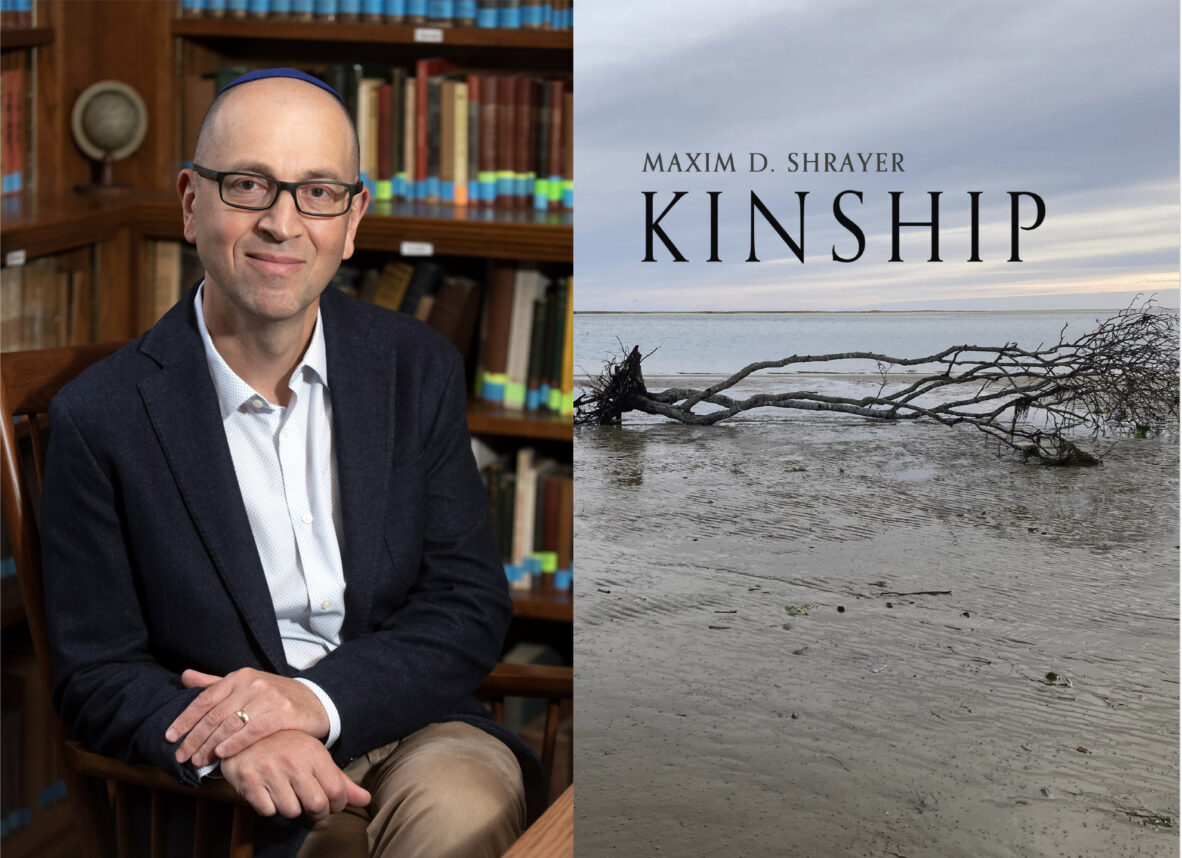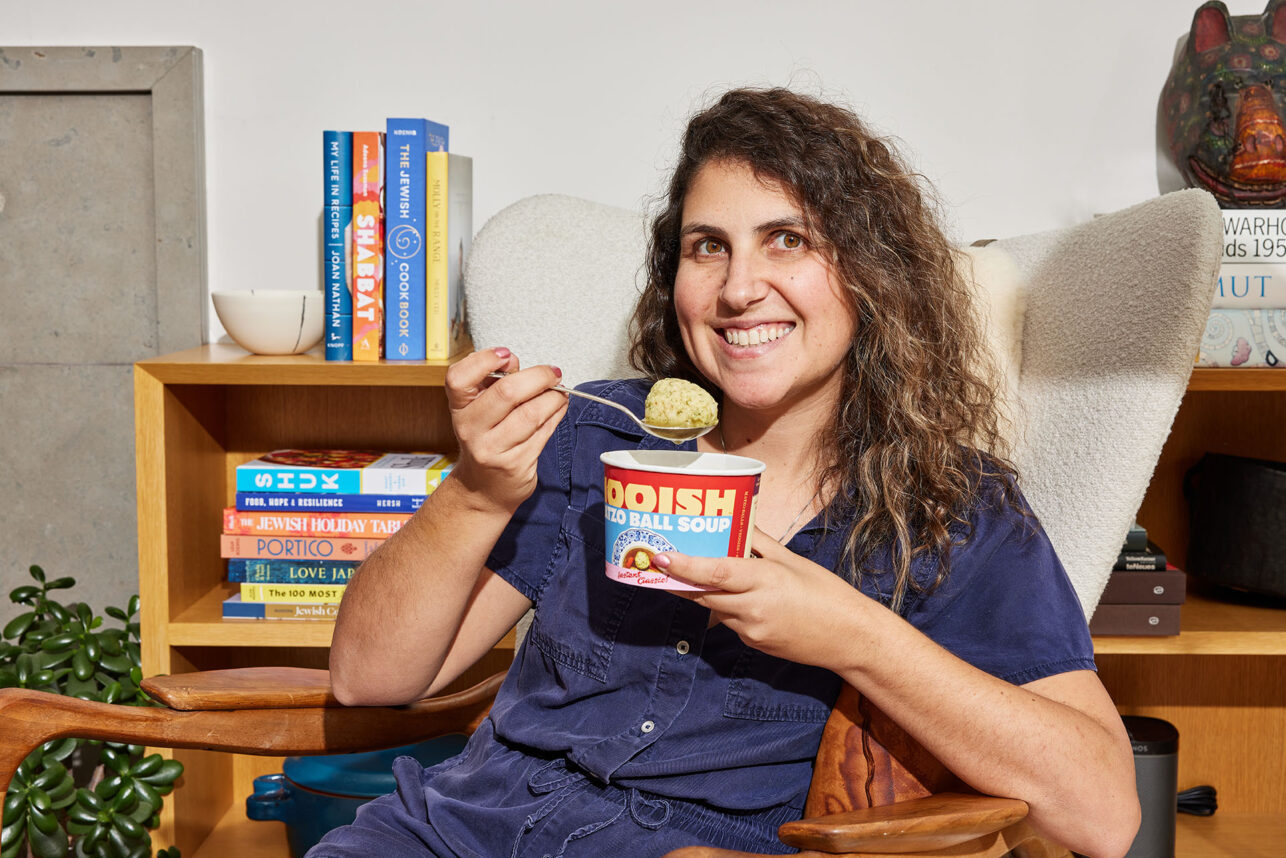Students from Hillel: The Foundation for Jewish Campus Life gathered one night during the recent General Assembly of the Jewish federation system and confronted Richard Joel.
The students peppered Joel, Hillel’s president and international director, with criticism that events during the United Jewish Communities’ annual gathering had condescended to them.
Joel — who had delivered speeches, participated in panels and spent days working the summit halls — listened intently. He expressed sympathy for the students and asked them how they would have done things differently.
For Neil Moss, the chairman of Hillel’s board of directors and a longtime colleague, Joel’s reaction was “warm and engaging” — typical for a corporate chief who also plays accordion, dances and sings into the wee hours at summer Hillel retreats.
“Sometimes I joke with him that he’s an overgrown camp counselor,” Moss said. “He’s the guy who loses his voice.”
Joel’s voice now will resonate in a much wider arena as the president of Yeshiva University (YU).
Joel is expected to stay with Hillel through the spring of 2003, at which time he will take up his post at Yeshiva University. Hillel has assembled a search committee of 12 members, representing its philanthropists, national and regional staff and student activists.
No short list of prospects is yet in the offing, and it could take from one to sixth months to find a new president.
Joel’s election capped a controversial two-year search that reflected the debate over whether to allow someone other than a Torah scholar to head the world’s largest Orthodox university.
“I think he’ll take an excellent institution and take it to all kinds of places we haven’t dreamed about,” said Barry Shrage, president of the Combined Jewish Philanthropies of Greater Boston.
Shrage, who also is a member of the modern Orthodox movement, predicts Joel is “going to continue to develop a vision for modern Orthodoxy that can be communicated within the community and outside of it.”
But others aren’t as pleased, because Joel is neither a rabbi or an academic.
“The choice of Richard Joel for the presidency of Yeshiva University raises a question on leadership of the institutions of Judaism in the USA: what credentials are required?” Jacob Neusner, Research Professor of Religion and Theology at Bard College wrote in a letter. “The trustees of Yeshiva University have repudiated the twin-ideals that Yeshiva University was founded to embody: both Torah and secular learning (Torah umada). Mr. Joel has neither.”
For his part, Joel insisted he’s setting his sights strictly on the world of YU, where he once was dean of the Cardozo School of Law. He has a daughter at the school’s Stern College for women and a son at the Rabbi Isaac Elchanan Theological Seminary (RIETS).
“With real humility, I’ve accepted the presidency of YU. No one has offered me the leadership of the Orthodox world,” he said.
Many who have worked with Joel said they’re confident he’ll succeed. In part, they point to Joel’s professional skills and his 14-year track record at Hillel: He took an organization of campus religious chapters loosely tied to B’nai B’rith and on the brink of financial collapse, and transformed it into a high-profile, well-funded, corporate-style entity, they said.
“He took an organization that was considered dorky and turned it around into a place kids want to be,” said Lynn Schusterman, president of the Charles and Lynn Schusterman Foundation, which has donated a good portion of Hillel’s $46 million annual budget.
Many involved in Hillel said Joel fueled the turnaround with his sheer magnetism. Schusterman calls Joel a “pied piper,” while many cite his “charisma” in the near-reverent tones groupies reserve for rock stars.
“He has a vision for Jewish life that is very deep and compelling and profound,” said Rabbi Jim Diamond, director of the Center for Jewish Life at Princeton University and of the Princeton Hillel.
“He is the total package. He has extraordinary ability in all areas — vision, speaking, people skills, management skills, creativity,” added Jay Rubin, Hillel’s executive vice president.
Joel’s rhetorical abilities are well-known. Nathan Diament, director of the Orthodox Union’s Institute for Public Affairs, said Joel “realizes the power of language in conveying ideas, in motivating people and institutions.”
It was Joel who created the two key catch-phrases at the core of Hillel: “Jewish renaissance” and the motto, “maximize the number of Jews doing Jewish.”
Still, some say the key is Joel’s ability to marry lofty words to real strategies.
“It’s not a JFK-style charisma, it’s something deeper,” Shrage said. “What he has is a real vision that he can articulate and bring to life. People know he’s for real.”
Joel is also a workhorse, many said. Seth Goldstein, now a New York University law school student, earned an Edgar Bronfman scholarship while he was a Hillel member at Cornell University, which enabled him to work as an aide to Joel for a year.
“He’s nonstop; he never said no,” recalled Goldstein, 24. “His days start at 6:30 a.m. and go to 2:30 a.m. I would leave him at 1:15 a.m. and he’d still be going.”
Joel also served as chairman of an Orthodox Union (OU) commission that investigated sexual harassment in the case of Rabbi Baruch Lanner. In December 2000 the panel released part of a scathing 332-page report blaming OU leaders for ignoring reports of Lanner’s abuse and urging major organizational reforms
At Hillel, Joel applied the kind of power-sharing leadership techniques that management gurus advocate. Colleagues speak of having “autonomy” and being allowed to “take ownership” of their work.
But he also set the bar high.
“One of Richard’s hallmarks was to say, ‘We’ve done this — now what?'” Rubin said. “He strives for excellence.”
“Now what?” is a good question.
The search for a new YU head was so fraught with tension that it was only in the two days preceding the Dec. 5 vote that the boards of trustees for the university and RIETS appeared ready to back Joel.
Even then, it came only after Joel met with the trustees at length, face to face.
In the end, YU officials arrived at an arrangement that some called surprising: Joel was named president of YU and chief executive officer of RIETS, while YU’s outgoing president Rabbi Norman Lamm, a highly regarded Torah scholar, will become rosh yeshiva of RIETS and university chancellor.
Yeshiva, a top-ranked university with five locations in New York — including RIETS, medical and law schools, affiliated health-care centers and high schools — has become a “variegated” entity, according to Julius Berman, president of the RIETS board and a former president of Jewish Telegraphic Agency’s board of directors.
In light of its “complex” character, Berman said, Yeshiva “requires that much more leadership.”
The institution will remain committed to the motto “Torah U’madda” — Torah and science — indicating a synthesis of Jewish and general studies, Berman said.
Joel also has vowed to encourage “a more integral relationship” between different segments of the university, Berman added.
For example, Joel might invite Lamm or other Torah scholars to lecture at the medical school on cloning and Jewish law, Berman said, or ask a medical school professor to speak at the college.
Exactly how Yeshiva’s new power structure will develop remains to be seen. Berman and others, including Joel himself, said the exact parameters of the roles Joel and Lamm will play still need be defined.
But those who know Joel said he embodies what Yeshiva is about, and is deeply committed to the university’s success.
A former New York assistant district attorney, Joel remains devoted to his wife and six children, reportedly never missing a Shabbat with them.
He also helped found a modern Orthodox congregation, Kemp Mill Synagogue, in his home city of Silver Spring, Md., that today includes 250 families.
Diamond said Joel will “do great things” for Yeshiva, though even his friend is “not the Moshiach.”
No one is perfect. He moves very fast, he has a clear idea of what he wants and doesn’t want, and he can be very tough,” Diamond said. “But I think that’s going to help him at Yeshiva. To be a university president, you have to be tough.”























 More news and opinions than at a Shabbat dinner, right in your inbox.
More news and opinions than at a Shabbat dinner, right in your inbox.